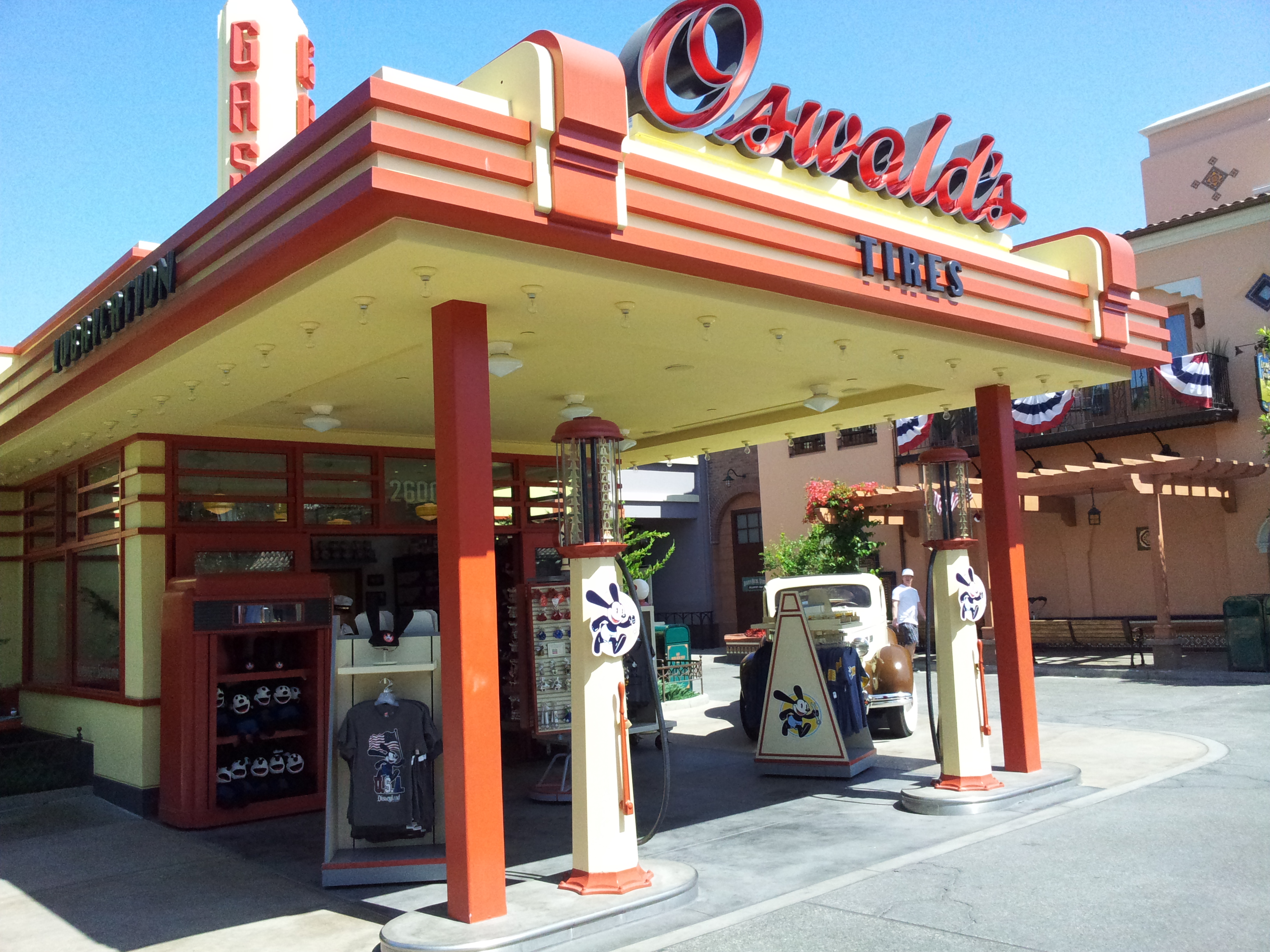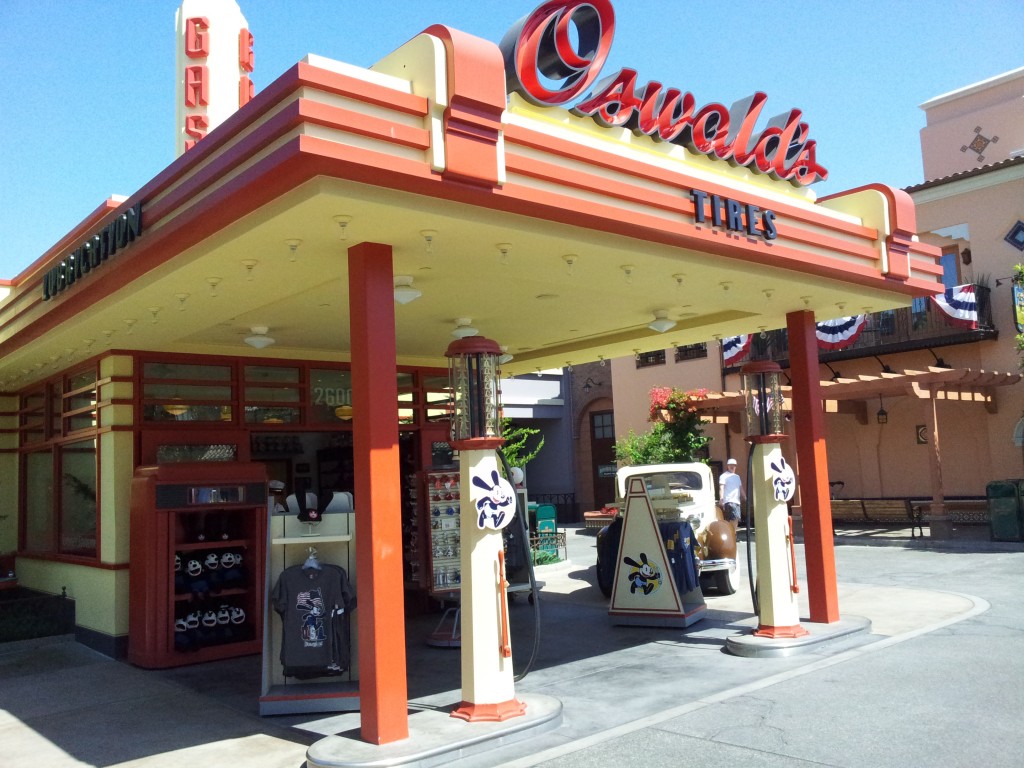After lunch at Club 33 and a ride through the Haunted Mansion, we all decided to head over to Disney’s adjacent theme park, California Adventure. The moment we walked through the entrance I was greeted by one of the coolest things I’ve ever seen. If you don’t know what you are seeing, you aren’t alone. It made me very sad that the significance of it was probably lost on 99% of the people who entered the gates of the park. I wanted to stand in front of it and preach about the importance of what this building means; about what you can learn from it; how you can emulate in your own life the education for which Disney himself paid the tuition.
Oswald the Lucky Rabbit was Walt Disney’s first major, truly successful animated character. He created him with Ub Iwerks, and in the 1920’s and 1930’s, Oswald was distributed by Universal Pictures. Oswald became very famous before being taken away from his then-27-year old creator. It was devastating, and one of the reasons Disney vowed to never be in a position to lose creative control again. It was the pain of this loss that drove Walt to create what is now the most famous animated character in the history of the world: Mickey Mouse. It was the feeling of helplessness that made him become the equivalent of an entrepreneurial dictator; a model that I think works in certain creative fields.
[mainbodyad]It took eighty years for the Walt Disney Company to get its hands back on ownership of Oswald. It finally happened when Bob Iger, then COO and now CEO, decided that he was going to right a wrong that had been allowed to stand for too many generations. Iger bought back Oswald and all of the old Disney Oswald films from Universal with the money and assets amassed by the empire built by the world’s most famous mouse. Bob then brought Oswald back to active status by featuring him in a video game called Epic Mickey, which was based upon the character’s story. (In it, Mickey Mouse accidentally ruins Oswald’s world, and then goes on to become successful, famous, and beloved, while he is ignored and forgotten. Oswald then returns as a co-protagonist in the sequel game, Epic Mickey 2.)
Had Walt Disney quit when he saw his intellectual baby taken from him, he would have been washed up and embittered before his reign began. He suffered a huge professional, personal, and emotional loss, yet it was how he reacted to it that caused him to become the giant he is today. Had he sat around and wallowed in self-pity, none of us would have heard of the boy from Kansas City. There would be no Disneyland. There would be no Walt Disney World. Everything that followed would never have come into existence; no Lion King, Beauty and the Beast, Little Mermaid, or Aladdin. The Disney company wouldn’t own Pixar – if Pixar would even exist, who knows how things are interconnected? – as the animation industry may never have become popular were it not for the rise of Snow White and the Seven Dwarfs (it isn’t an accident that Disney’s corporate headquarters is built on pillars held up by sculptures of Bashful, Doc, Dopey, Grumpy, Happy, Sleepy, and Sneezy; it’s poetic allegory).
It may be subtle. It may go unnoticed by almost everyone who buys a ticket to the Disneyland theme park. But if you know the story, you are looking at some of the most powerful lessons you can ever learn in life or business:
- Never give up when disaster strikes because odds are, it will strike. You have to build a life, and a company, that can withstand the storms, not avoid them.
- Protect yourself and never be in a position where your intellectual property or capital can be taken from you without your consent or fair compensation.
- Always retain creative control if you are the type that needs it to thrive. No amount of money can make up for its loss.
It’s a human story repeated countless times. You probably walk right by them without paying attention. Yet, today, directly across the street from the Magic Kingdom, the first thing you encounter in California Adventure is Oswald’s tire shop. I think it is not only fitting, but one of the most respectful things Iger could have done for the namesake of the company, who wasn’t around to see things made right.
[mainbodyad]




